第45章
It is something also that each age has its choice of the death it will die.Our generation is most ingenious.From our public assembly-rooms and houses we have almost succeeded in excluding pure air.It took the race ages to build dwellings that would keep out rain; it has taken longer to build houses air-tight, but we are on the eve of success.We are only foiled by the ill-fitting, insincere work of the builders, who build for a day, and charge for all time.
II
When the fire on the hearth has blazed up and then settled into steady radiance, talk begins.There is no place like the chimney-corner for confidences; for picking up the clews of an old friendship; for taking note where one's self has drifted, by comparing ideas and prejudices with the intimate friend of years ago, whose course in life has lain apart from yours.No stranger puzzles you so much as the once close friend, with whose thinking and associates you have for years been unfamiliar.Life has come to mean this and that to you; you have fallen into certain habits of thought;for you the world has progressed in this or that direction; of certain results you feel very sure; you have fallen into harmony with your surroundings; you meet day after day people interested in the things that interest you; you are not in the least opinionated, it is simply your good fortune to look upon the affairs of the world from the right point of view.When you last saw your friend,--less than a year after you left college,--he was the most sensible and agreeable of men; he had no heterodox notions; he agreed with you; you could even tell what sort of a wife he would select, and if you could do that, you held the key to his life.
Well, Herbert came to visit me the other day from the antipodes.And here he sits by the fireplace.I cannot think of any one I would rather see there, except perhaps Thackery; or, for entertainment, Boswell; or old, Pepys; or one of the people who was left out of the Ark.They were talking one foggy London night at Hazlitt's about whom they would most like to have seen, when Charles Lamb startled the company by declaring that he would rather have seen Judas Iscariot than any other person who had lived on the earth.For myself, I would rather have seen Lamb himself once, than to have lived with Judas.Herbert, to my great delight, has not changed; Ishould know him anywhere,--the same serious, contemplative face, with lurking humor at the corners of the mouth,--the same cheery laugh and clear, distinct enunciation as of old.There is nothing so winning as a good voice.To see Herbert again, unchanged in all outward essentials, is not only gratifying, but valuable as a testimony to nature's success in holding on to a personal identity, through the entire change of matter that has been constantly taking place for so many years.I know very well there is here no part of the Herbert whose hand I had shaken at the Commencement parting; but it is an astonishing reproduction of him,--a material likeness; and now for the spiritual.
Such a wide chance for divergence in the spiritual.It has been such a busy world for twenty years.So many things have been torn up by the roots again that were settled when we left college.There were to be no more wars; democracy was democracy, and progress, the differentiation of the individual, was a mere question of clothes; if you want to be different, go to your tailor; nobody had demonstrated that there is a man-soul and a woman-soul, and that each is in reality only a half-soul,--putting the race, so to speak, upon the half-shell.The social oyster being opened, there appears to be two shells and only one oyster; who shall have it? So many new canons of taste, of criticism, of morality have been set up; there has been such a resurrection of historical reputations for new judgment, and there have been so many discoveries, geographical, archaeological, geological, biological, that the earth is not at all what it was supposed to be; and our philosophers are much more anxious to ascertain where we came from than whither we are going.In this whirl and turmoil of new ideas, nature, which has only the single end of maintaining the physical identity in the body, works on undisturbed, replacing particle for particle, and preserving the likeness more skillfully than a mosaic artist in the Vatican; she has not even her materials sorted and labeled, as the Roman artist has his thousands of bits of color; and man is all the while doing his best to confuse the process, by changing his climate, his diet, all his surroundings, without the least care to remain himself.But the mind?